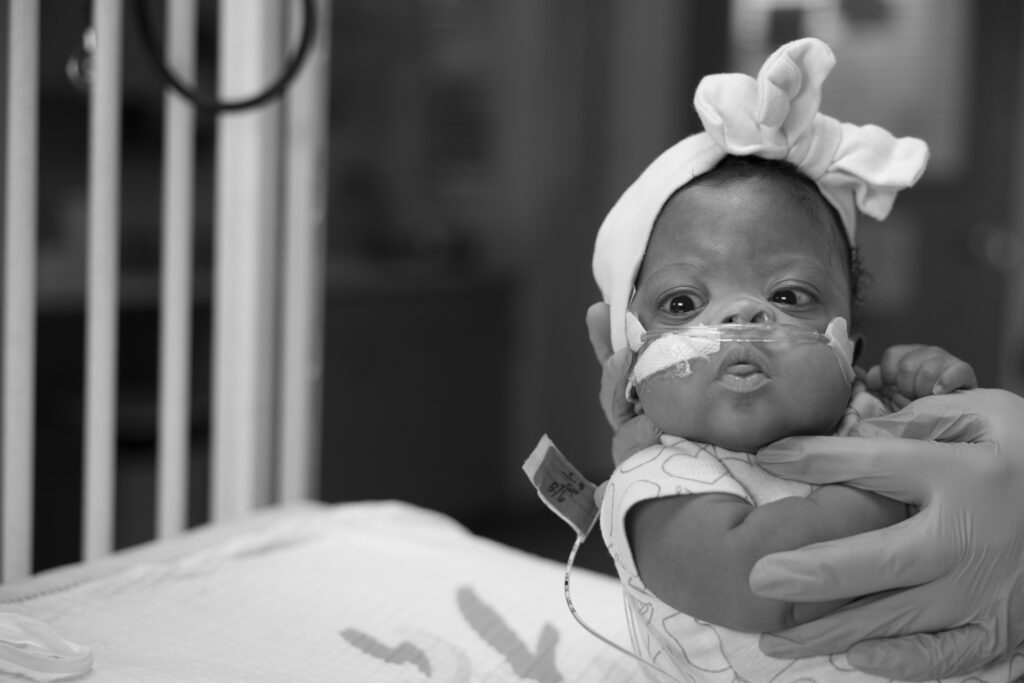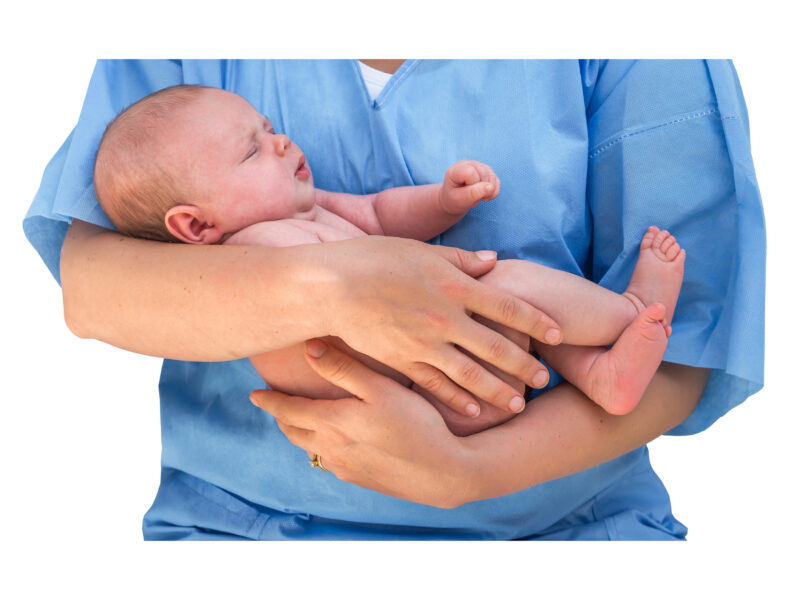Assessing Respiratory Stability in Infants Hospitalized with Bronchopulmonary Dysplasia
Assessing Respiratory Stability in Infants Hospitalized with Bronchopulmonary Dysplasia https://pediatricsnationwide.org/wp-content/uploads/2023/08/091021BS0157-1024x683.jpg 1024 683 Mary Bates, PhD Mary Bates, PhD https://secure.gravatar.com/avatar/c6233ca2b7754ab7c4c820e14eb518c8?s=96&d=mm&r=g- August 04, 2023
- Mary Bates, PhD

The Behavioral Signs of Respiratory Instability Scale is a valid, reliable measure of respiratory status and developmental ability.
In a new study, researchers at Nationwide Children’s evaluated the Behavioral Signs of Respiratory Instability (BSRI) Scale, which was developed as an objective measure of developmental capacity of infants with severe forms of bronchopulmonary dysplasia (BPD). The results suggest that standardized measures such as the BSRI may provide accurate, objective data that can be used by interdisciplinary teams to support brain growth and potentially improve neurodevelopment in infants with severe BPD.
BPD is a common complication of premature birth and typically requires long hospitalizations for medical management. In addition to abnormal lung development, infants with severe BPD are at greater risk for long-term neurodevelopmental problems. It is believed that the interventions for BPD, which may include the use of steroids, diuretics, oxygen concentration, and ventilation management over long periods of time, may contribute to these neurodevelopmental outcomes.
Though lab tests are often used to assess respiratory status, they may be an indirect and sometimes inaccurate reflection of how patients with severe BPD are doing. The interdisciplinary medical team caring for these infants at Nationwide Children’s has used the BSRI Scale for over 10 years to inform medical management decisions that support best outcomes.
The BSRI Scale is used in the context of the baby performing developmentally appropriate motor activity during physical and occupational therapy sessions, such as holding up their heads and interacting with caregivers.
“Our culture of caring for these patients is different from other places,” says Edward Shepherd, MD, the section chief of Neonatology at Nationwide Children’s and co-author of the study. “We’ve developed an approach where we provide babies with BPD enough support over long periods of time that they can then focus on the important things, like developing and growing stronger.”
In the new study, Dr. Shepherd and colleagues evaluated the inter-rater reliability and validity of the BSRI in hospitalized infants with BPD. They found that with standardized training, clinicians using the scale achieved good to excellent inter-rater reliability. In addition, BSRI scores appear to reflect the respiratory stability of infants with BPD.
Although not analyzed in this study, the researchers believe the BSRI Scale helps support inpatient neurodevelopment and improves long-term outcomes for infants with BPD.
“For every baby, the first year of life is the most critical period of brain growth and development,” says co-author Kelly Susey, MPT, CNT, a physical therapist at Nationwide Children’s. “If we can give them the opportunity to learn, to have positive experiences, and to interact with their caregivers, that seems to improve developmental outcomes.
“Despite how sick these babies with BPD are, and how long-term their stay is, we have seen that they have a remarkable capacity to try to live and be babies.”
The BPD program at Nationwide Children’s is influential across the country, says Dr. Shepherd, who is also a professor of clinical pediatrics at The Ohio State University College of Medicine.
“The BSRI Scale is useful as a means of guiding care that is more precise than other standard measures,” he says. “Our culture of care is challenging the fundamental basis for how to care for babies with severe BPD; the slower we take away the support, the faster these babies grow and develop and go home. But we see that it works—our outcomes are much better than other places with similar patient populations.”
Reference:
Susey K, Hanin M, Wortner A, Mandich M, Scott K, Stephenson K, Shepherd E, Mehling M. Validity and reliability of the behavioral signs of respiratory instability (BSRI) © scale during activity for infants with bronchopulmonary dysplasia. Journal of Perinatology. 2023 Apr 25:1–5. doi: 10.1038/s41372-023-01682-9. Epub ahead of print.
Image credit: Nationwide Children’s
About the author
Mary a freelance science writer and blogger based in Boston. Her favorite topics include biology, psychology, neuroscience, ecology, and animal behavior. She has a BA in Biology-Psychology with a minor in English from Skidmore College in Saratoga Springs, NY, and a PhD from Brown University, where she researched bat echolocation and bullfrog chorusing.
-
Mary Bates, PhDhttps://pediatricsnationwide.org/author/mary-bates-phd/December 27, 2016
-
Mary Bates, PhDhttps://pediatricsnationwide.org/author/mary-bates-phd/
-
Mary Bates, PhDhttps://pediatricsnationwide.org/author/mary-bates-phd/
-
Mary Bates, PhDhttps://pediatricsnationwide.org/author/mary-bates-phd/
- Posted In:
- Clinical Updates
- In Brief
- Research






